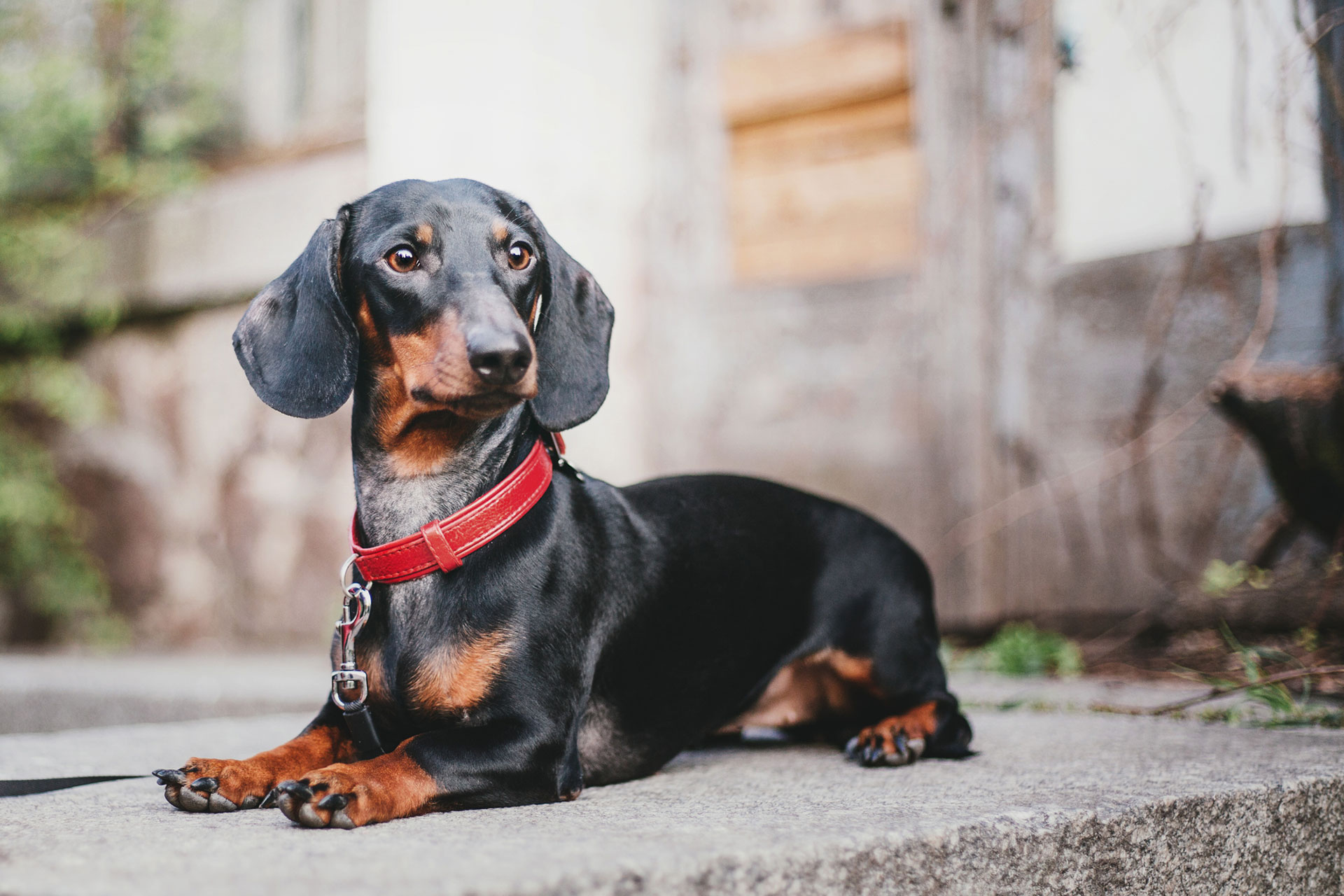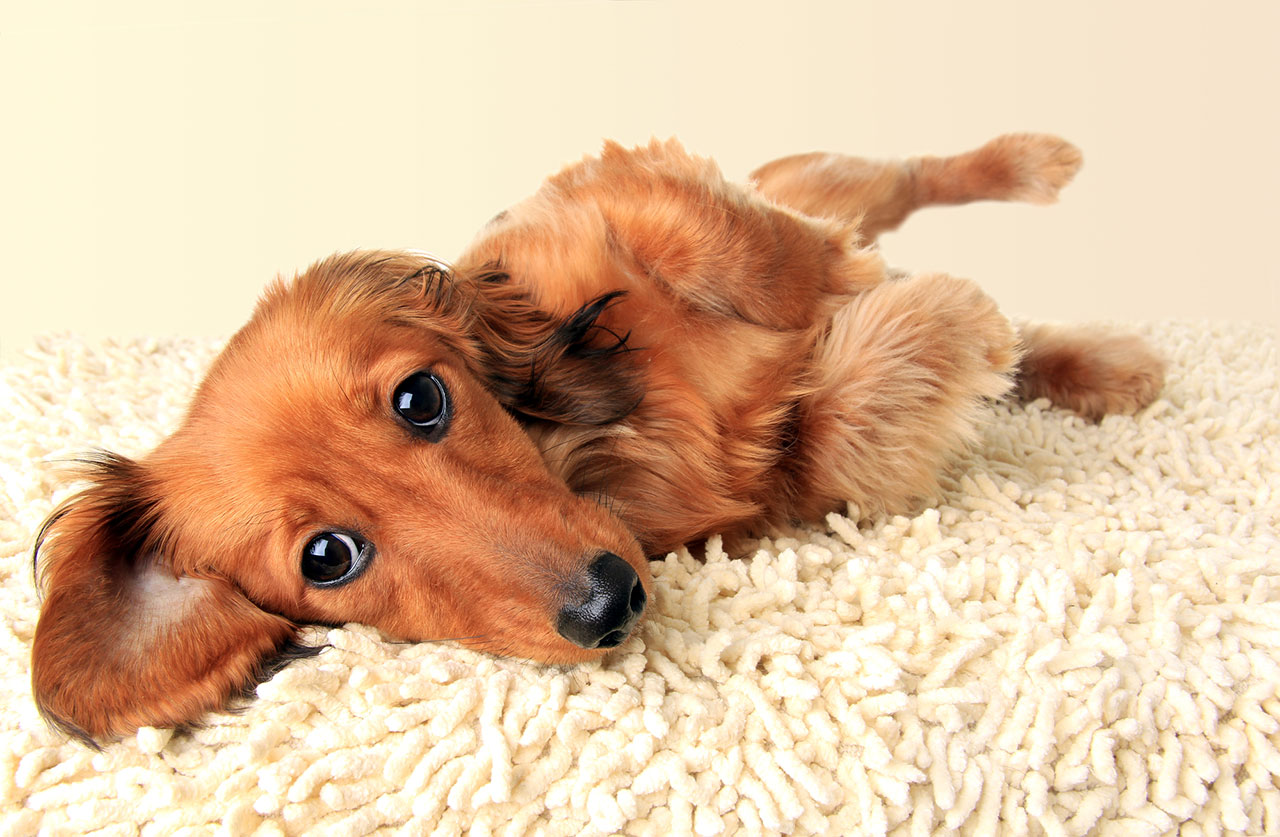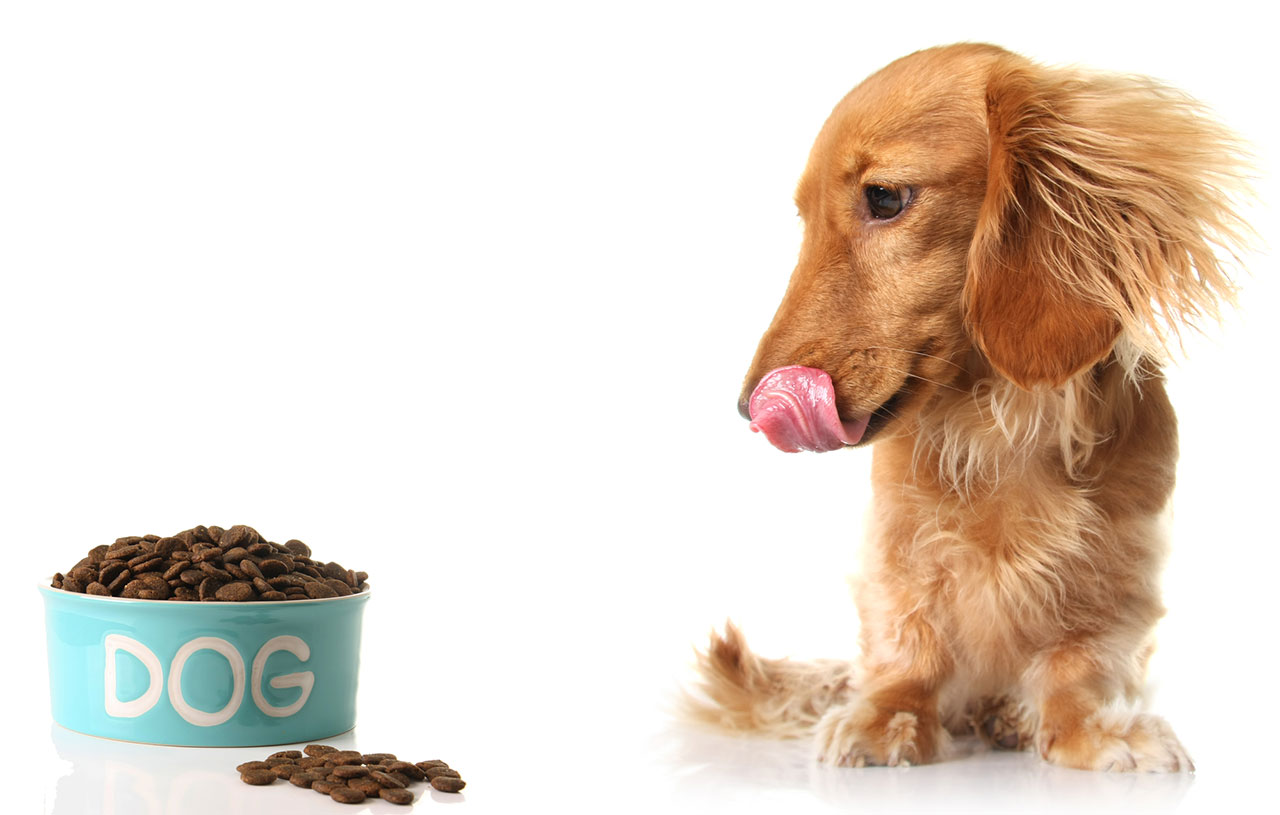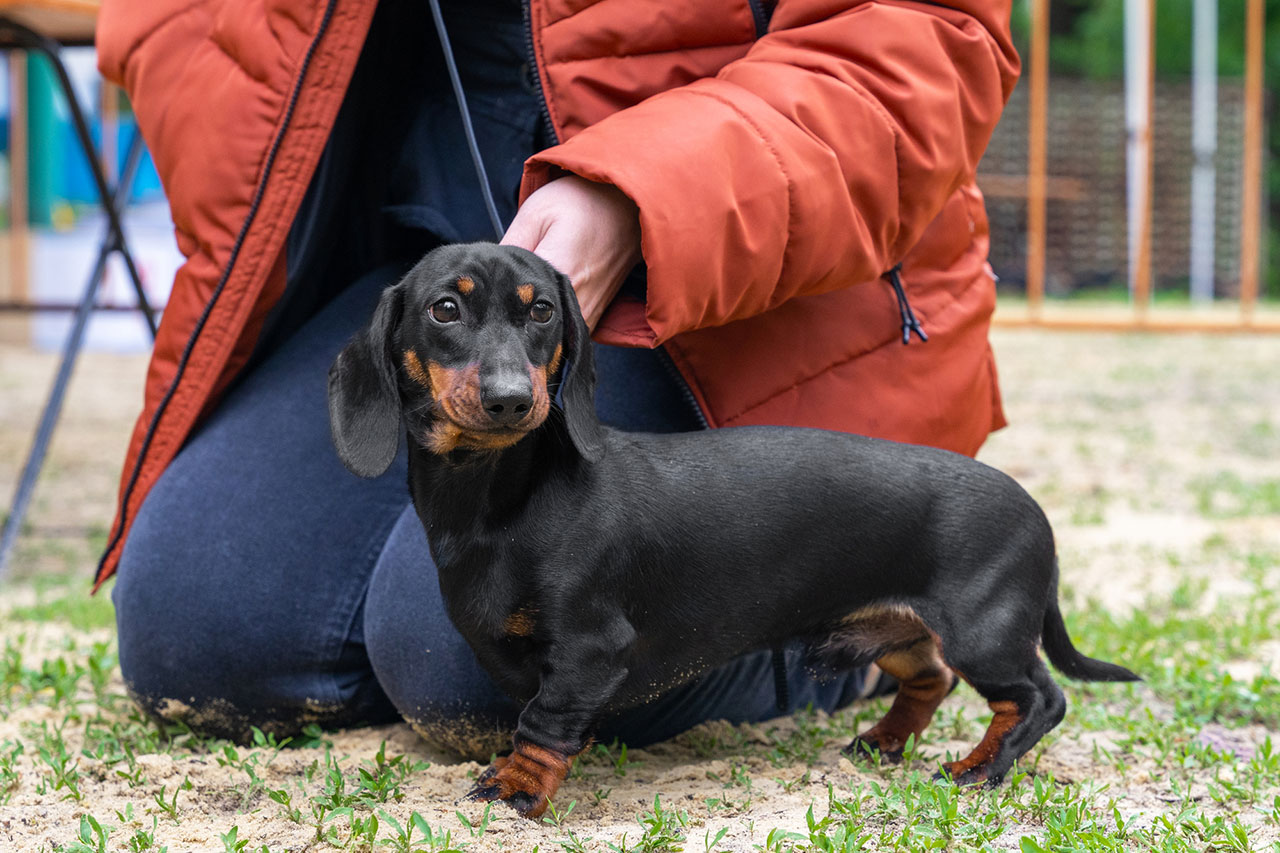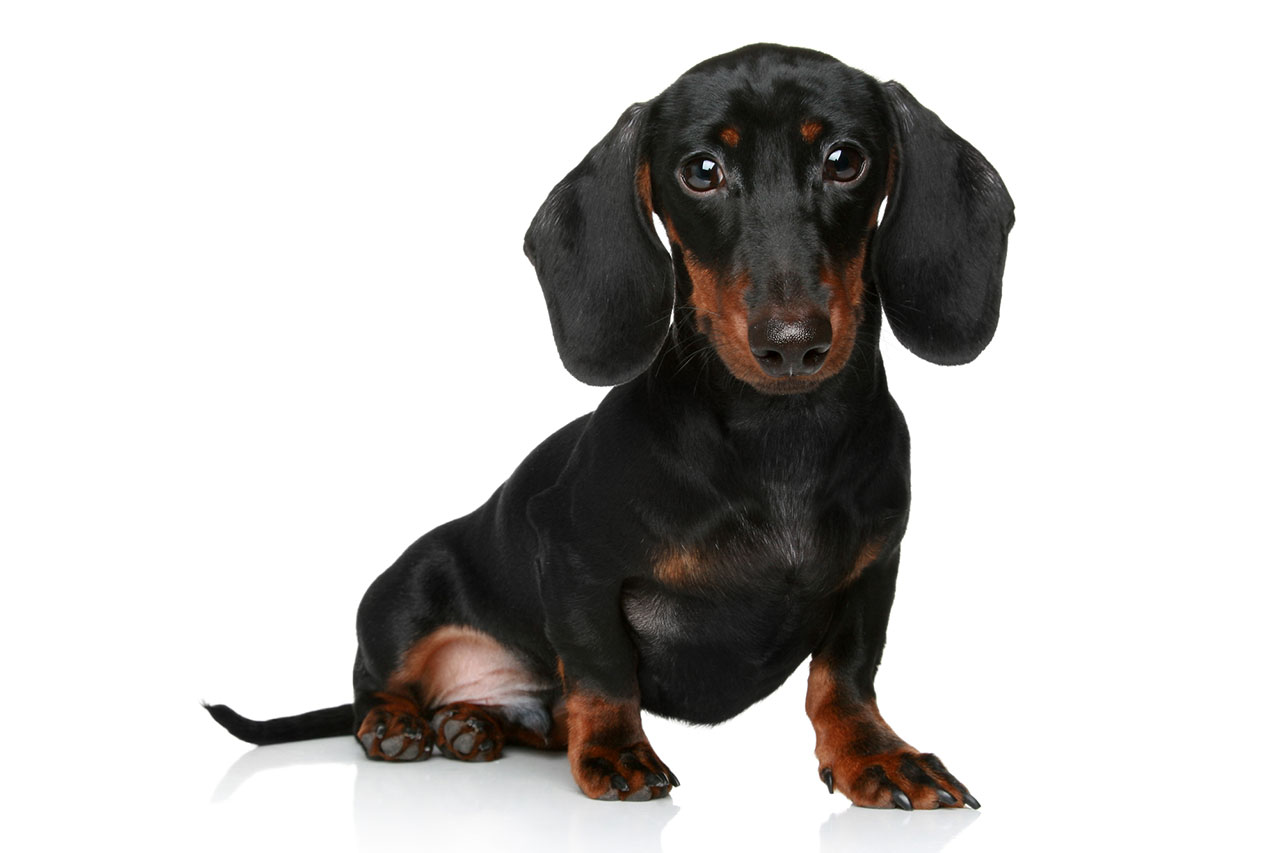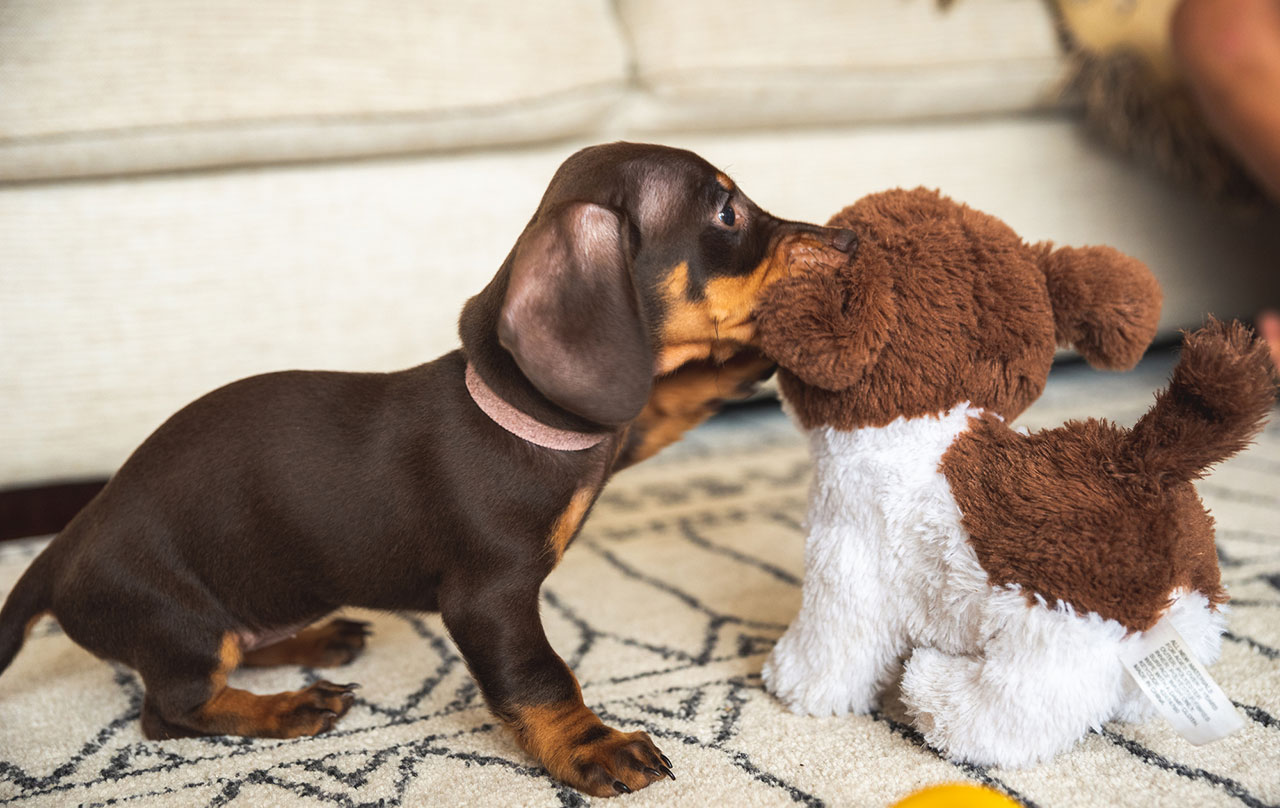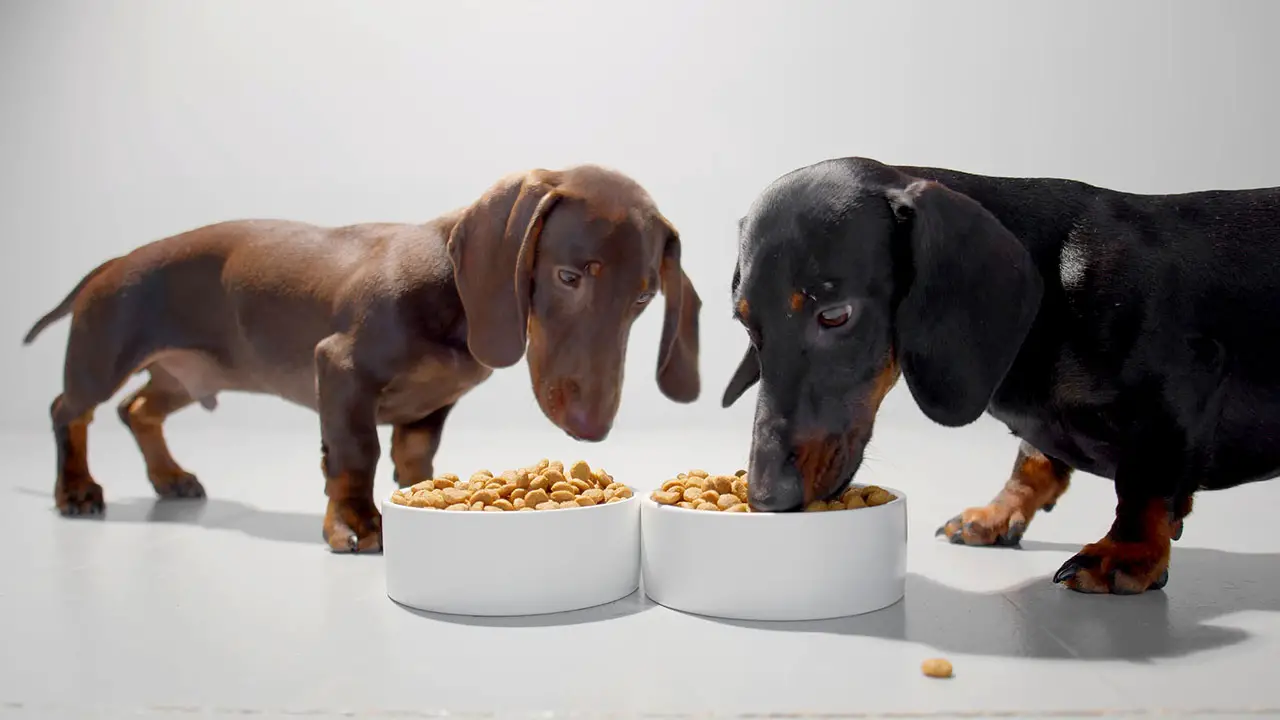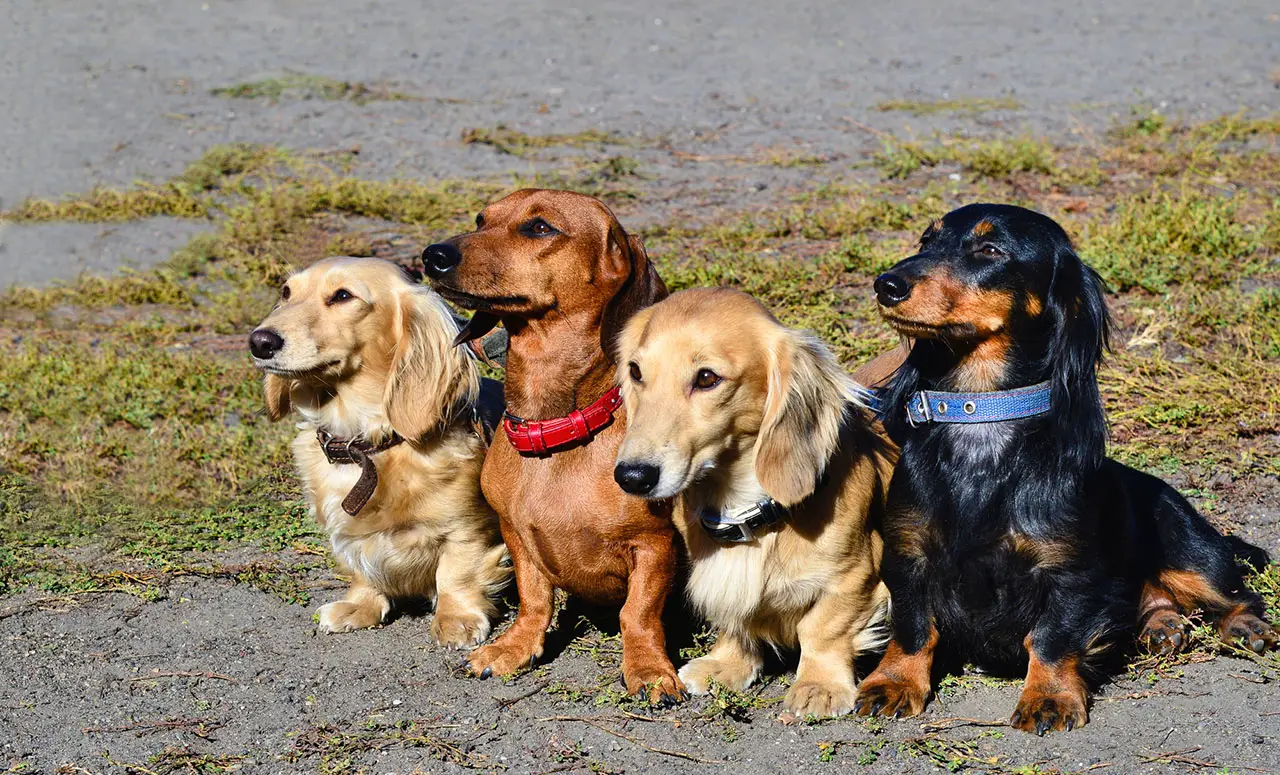Standard Dachshund vs Mini Dachshund
People are often unsure which type of Dachshund is the best for them. We know that Dachshunds are one of the most popular dog breeds, and there are two types to choose from- the Standard Dachshund and the Mini Dachshund. So which sausage dog is right for you? Let’s breakdown down the main differences between these two types of Doxies!
What to Expect From a Standard Dachshund
The Dachshund breed, also known as, “sausage dogs” or “badger dogs”, are a popular small dog breed known for their long body and short legs. The Standard Dachshund is the largest, or standard size, of the two varieties recognized by the American Kennel Club. They can weigh up to 32 pounds, and they are lively breeds that make excellent pets as an active dog for any family. They are known for their hunting skills and have a strong prey drive for small animals. If you are thinking of getting a Dachshund, here are some things to consider.
They love to play and explore, so a backyard or park is an excellent place to run around. They also need to be taken on daily walks and given plenty of opportunities to play.
Dachshunds are intelligent dogs and can be easy to train. They are quick learners and respond well to positive reinforcement. However, they can be stubborn and may need patience and persistence when preparing.
Dachshunds are social creatures and love to be around people. They want to be part of a family and do their best in homes where someone is home most of the time.
Dachshunds are relatively healthy dogs, but some health conditions must be aware of. With their long backs they are prone to back problems, like intervertebral disc disease and should not be allowed to jump or climb stairs. They have a susceptibility to ear infections and need regular grooming to keep their coats healthy.
The Different Types of Standard Doxies
Dachshunds are a unique breed of dog in the United States that comes in many shapes and sizes. The 3 different types of Standard Dachshunds are identified by their coat type. The main types of a Standard Dachshund- short-haired, long-haired, and wire-haired.
- The short-haired Dachshund- is the most common type of coat varieties. It has a smooth and short coat that is easy to care for. Short-haired Dachshunds are available in various colors, including black, tan, and chocolate. Also known as smooth Dachshunds because of their smooth coat.
- Longhaired Dachshunds have a beautiful, long coat that requires more maintenance than the short-haired variety. Long-Haired Dachshunds come in colors similar to the short-haired Dachshund, but they may also have markings of white or cream.
- Wire-haired Dachshunds are the least common type of Standard Dachshund. They have a rough, wiry coat that requires regular grooming. Wirehaired Dachshunds are available in colors similar to the other two types, but they may also have markings of white or cream.
All three types of Standard Dachshunds make great pets and live up to the breed standard. They are a type of dog known for their loyalty, affectionate nature, and playful personality.
How to Care For a Standard Dachshund
This type of dog is prone to obesity, so it’s essential to put them on a diet and get enough exercise. Dachshunds also require plenty of grooming, so be prepared to brush their hair and bathe them regularly. A Standard Dachshund can be a loyal and loving companion with the proper care.
What to Feed a Standard Dachshund
As with all breeds of dogs, it is essential to feed your Standard Dachshund the right type and exact amount of food to keep them healthy and fit.
There are a few things to keep in mind when feeding your Standard Dachshund when it comes to food.
- First, these dogs are small and have a relatively high metabolism, so they need food that is high in calories and protein.
- Second, since they were originally bred as hunting dogs, they have a high prey drive and may try to eat anything they can get their teeth on.
- Lastly, You will need to be careful about what type of food you leave out for them and make sure that it is not something that they can easily shred or choke on.
The best type of food for your Standard Dachshund is high-quality dry food designed for small breeds. This type of food will have all of the nutrients your dog needs, including the right balance of proteins, fats, and carbohydrates. It is also essential to choose a low in sodium and fat food since these can harm your dog’s health. Most Standard Dachshunds will need about 1/2 to 1 cup of dry food per day. Puppies and young dogs may need more, while older dogs may need less.
In addition to dry food, you can also feed your Standard Dachshund wet food, snacks, and treats. Wet food can be a good option for meals or adding moisture to their diet. Snacks and treats can be used as training rewards or show your dog some extra love. When looking for snacks and treats, it is important to find options low in calories and fat and without any artificial ingredients.
You also need to ensure that your Standard Dachshund always has access to fresh water. Dogs need plenty of water to stay hydrated and help their bodies function properly. If you are not sure how much water your dog needs, talk to your veterinarian. They can help you figure out the right amount based on your dog’s size and activity level.
With these tips above, you can ensure that your Standard Dachshund is getting all the nutrients needed to stay healthy and happy.
Training and Obedience Tips for Standard Dachshunds
Remember to keep your training positive, using rewards like praise and treats to reinforce good behavior. It means rewarding your Dachshund for good behavior instead of punishing your dog for bad behavior. For example, if your Dachshund sits when you ask him to, give your dog a treat or praise. On the other hand, if your Dachshund jumps on you when you come home, turn your back on him and ignore him until he calms down.
Dachshunds are notoriously stubborn dogs, but this doesn’t mean that they can’t be trained. You can teach your Dachshund obedience commands and correct typical behavior problems with patience and consistency. Remember to use positive reinforcement and never give in to your Dachshund’s demands. With a bit of time and effort, you can have a well-behaved dog that you can be proud of.
What to Expect From a Mini Dachshund
When most people think of a Dachshund, the Standard-sized dog comes to mind. But haven’t you heard that there is also a Mini Dachshund? As the name suggests, these are smaller dogs and have a small size and weigh less than the Standard Dachshund. So what should you expect if you consider adding a Mini Dachshund to your family?
The Mini Dachshund is just as lively and energetic as its larger counterpart. This breed loves to play and can be quite mischievous. It’s also very loyal that form close bonds with their families. Mini Dachshunds are often described as “big dogs in small bodies” due to their bold and spunky personalities.
While they may be miniature, Mini Dachshunds are still relatively strong dogs. They were bred to hunt badgers and other burrowing animals, so they have a strong prey drive. They may try to chase after smaller animals like cats or squirrels. For this reason, it is essential to socialize your Mini Dachshund from a young age and provide them with plenty of exercise.
How to Care For a Mini Dachshund
- The first step in caring for a Mini Dachshund is to provide them with proper nutrition. Many commercially available foods are formulated specifically for Mini Dachshunds, and these are generally the best option. You should always consult with your veterinarian to find the best food for your dog.
- The second step in caring for a Mini Dachshund is to exercise them regularly, they’re very active dogs, and they need to be exercised daily. An excellent way to exercise a Mini Dachshund is to take them on walks or runs. It would be great if you would also give them plenty of opportunities to play.
- The third step in caring for a Mini Dachshund is regularly grooming them. Mini Dachshunds have long, thick coats, and they need to be brushed and combed frequently. They also need to have their nails trimmed regularly.
- The fourth step in caring for a Mini Dachshund is to train them properly. Mini Dachshunds are intelligent dogs, and they can be trained to do tricks, manners, and behaviors. It is essential to start preparing your dog as early as possible.
- The fifth step in caring for a Mini Dachshund is to provide them with plenty of love and attention. Mini Dachshunds are very affectionate dogs, and they thrive on human interaction. They should be given plenty of opportunities to cuddle and play.
You can provide your Mini Dachshund with the best possible care by following these steps. If you have any questions about caring for a Mini Dachshund, you should consult with your veterinarian.
What to Feed a Mini Dachshund
Keeping their diet in mind is essential because they tend to gain weight quickly. It would be best to focus on giving your dog plenty of high-quality protein, fiber, and omega-3 fatty acids. In addition, make sure to provide them with plenty of fresh water and avoid giving them table scraps. Mini Dachshunds are small, active dogs that need a high-quality diet to stay healthy and fit.
Look for a portion of food specially formulated for small breeds and provides all the nutrients they need in a smaller kibble size. Avoid foods high in fillers and artificial ingredients, as these can cause weight gain and other health problems. Instead, choose a natural, nutritious food that will help keep your Mini Dachshund healthy and happy.
Training and Obedience Tips for Mini Dachshunds
Mini Dachshunds are intelligent and loving dogs that can be a great addition to any family. However, it is essential to remember that they require proper training and obedience, just like any dog. Focus on these helpful tips to raise a healthy and well-adjusted Mini Dachshund.
- Start with basic obedience commands such as sit, stay, come, and down. Be consistent with your orders and rewards, and your Mini Dachshund will quickly learn what is expected of them.
- Positive reinforcement techniques, such as treats or praise, can encourage good behavior in Mini Dachshunds. Avoid punishment or scolding, as this can only lead to confusion and mistrust.
- Training a Mini Dachshund can be a challenge, but you can create a well-behaved dog that could bring joy to everyone around with patience and consistency. Dachshunds are willful dogs, so it is essential to be consistent with your commands and rewards.
So in conclusion, What are their similarities and differences?
Size – Standard Dachshunds are about twice the size of Mini Dachshunds
Weight – Standard Dachshunds weigh more than Mini Dachshunds
Price – Miniature Dachshunds tend to cost more than Standard Dachshunds
Temperament – Both types of dogs have a playful personality, but Miniature Dachshunds may be a bit naughtier than Standard Dachshunds
Lifespan – Both Dachshunds can live for up to 15 years, but the average life expectancy is 12 years.
Health Issues – Both Standard and Miniature Dachshunds are prone to health problems such as back issues, obesity, and diabetes, so it’s essential to take your dog for regular vet checkups.
So, if you are considering a Dachshund as your next pet, please be sure to do your research and choose the right dog for your lifestyle, Mini or Standard; know that both of them have their differences. And don’t forget, Dachshunds make excellent watchdogs too. If you’re looking for a loving pet that will keep your home safe, then a Dachshund might be perfect. We hope you’ve learned and better understood the differences between Standard and Mini Dachshunds. Yes, there may be physically larger dogs, but they have huge personalities, so be prepared for lots of laughs and love when you bring one of these cuties into your home from one of many responsible breeders. Have you decided yet which type of Dachshund is right for you?

